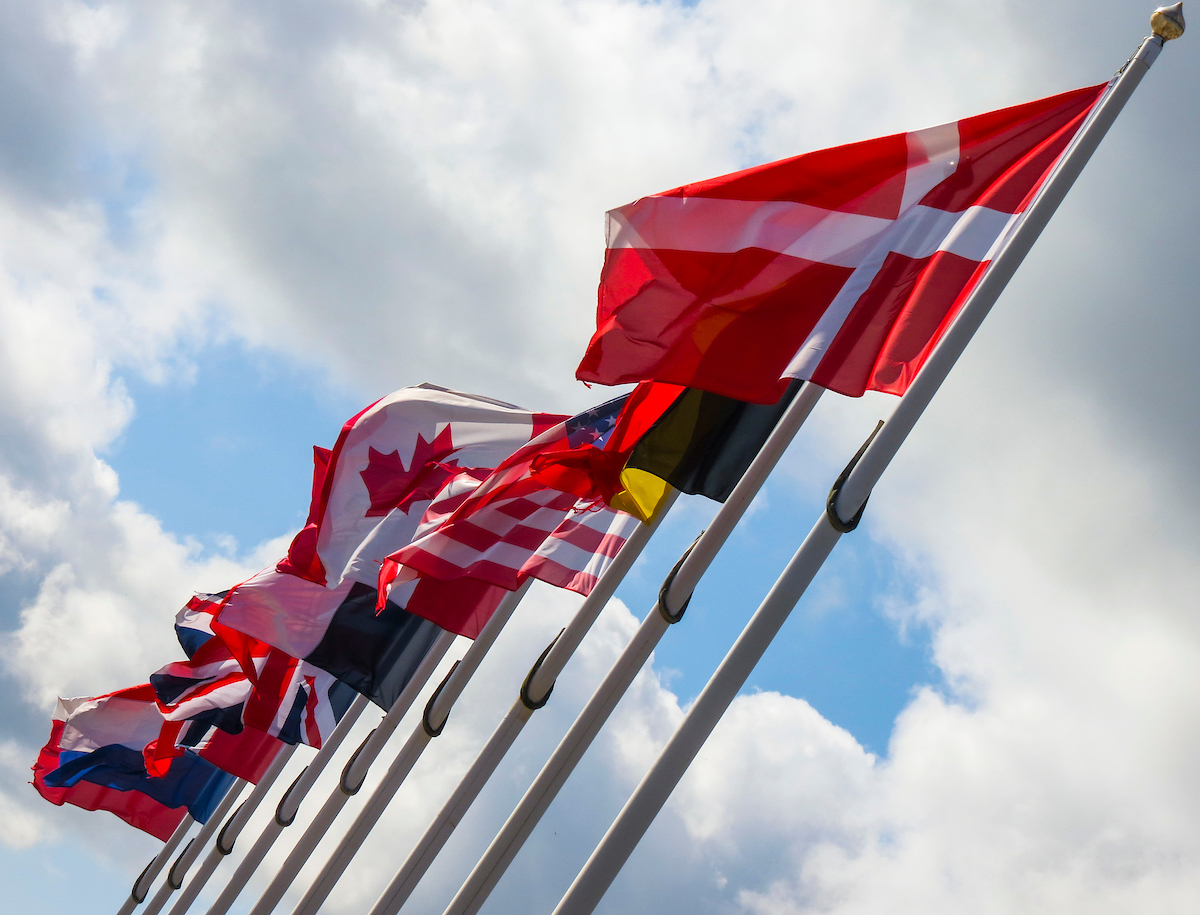 Unlike traditional diplomatic studies programs, DePaul’s applied diplomacy program will teach students how to apply the tools of diplomacy to both international contexts and domestic challenges. The program is set to launch this fall, at the start of the 2019-20 academic year. (DePaul University/Jamie Moncrief)
Unlike traditional diplomatic studies programs, DePaul’s applied diplomacy program will teach students how to apply the tools of diplomacy to both international contexts and domestic challenges. The program is set to launch this fall, at the start of the 2019-20 academic year. (DePaul University/Jamie Moncrief)
During the winter quarter, DePaul’s Faculty Council approved a new B.A. and M.A. in applied diplomacy program housed in the College of Liberal Arts and Social Sciences. The program will launch this fall, at the start of the 2019-20 academic year.
“The idea for this program came about from a task force which was formed in the fall of 2017,” says David Wellman, an associate professor of religious studies and a founding faculty member of the applied diplomacy program. “With the idea of exploring the possibility of developing a diplomacy program in mind, faculty from 23 departments and programs across campus came together to create something new and dynamic. Our efforts were guided by the concept of the transprofessionalization of diplomacy, which holds that while nation-state representatives practice diplomacy, it also is practiced by business people, scientists, artists, community organizers, religious leaders, educators and activists. We have developed a program that reflects this reality.”
Through a combination of traditional and nontraditional approaches, the program aims to prepare students to become effective practitioners of diplomacy in a number of contexts. Graduates will learn skills which will prepare them to pursue work in the foreign service, the field of public health, non-governmental organizations, the arts, business and many other professions which require mediation, conflict resolution and bridge building.
Unlike traditional diplomatic studies programs, DePaul’s program will teach students how to apply the tools of diplomacy to both international contexts and domestic challenges, such as addressing social and political conflict over issues connected to race, ethnicity, gender or income disparity, and promoting urban agriculture as a response to food deserts in Chicago. The program contains 14 unique concentrations, ranging from history of diplomacy to diplomacy and the arts to urban diplomacy, which examines diplomatic acts which take place within the boundaries of a single city.
“DePaul’s applied diplomacy curriculum will address the reality that the practice of diplomacy in the 21st century requires new and innovative responses to community formation, conflict resolution and relationship building,” Wellman says. “Our program is the first in the world to teach transprofessional diplomacy. We are spearheading an effort to redefine the discipline and change the way the average person defines who is and who can be a diplomat.”
Founders of the program already are working to expand the program beyond the expertise of the College of Liberal Arts and Social Sciences. They hope to establish concentrations in data-driven diplomacy, environmental diplomacy and commerce and diplomacy, among others. The team also is working with entities beyond DePaul on curriculum, mentoring and the creation of job and internship opportunities for graduates.
“The unique nature of our program already is attracting interest and support from scholars and practitioners around the world,” Wellman notes. “We are excited about where this is going and we look forward to seeing how our program can positively engage people from across DePaul, Chicago and beyond the borders of the United States.”